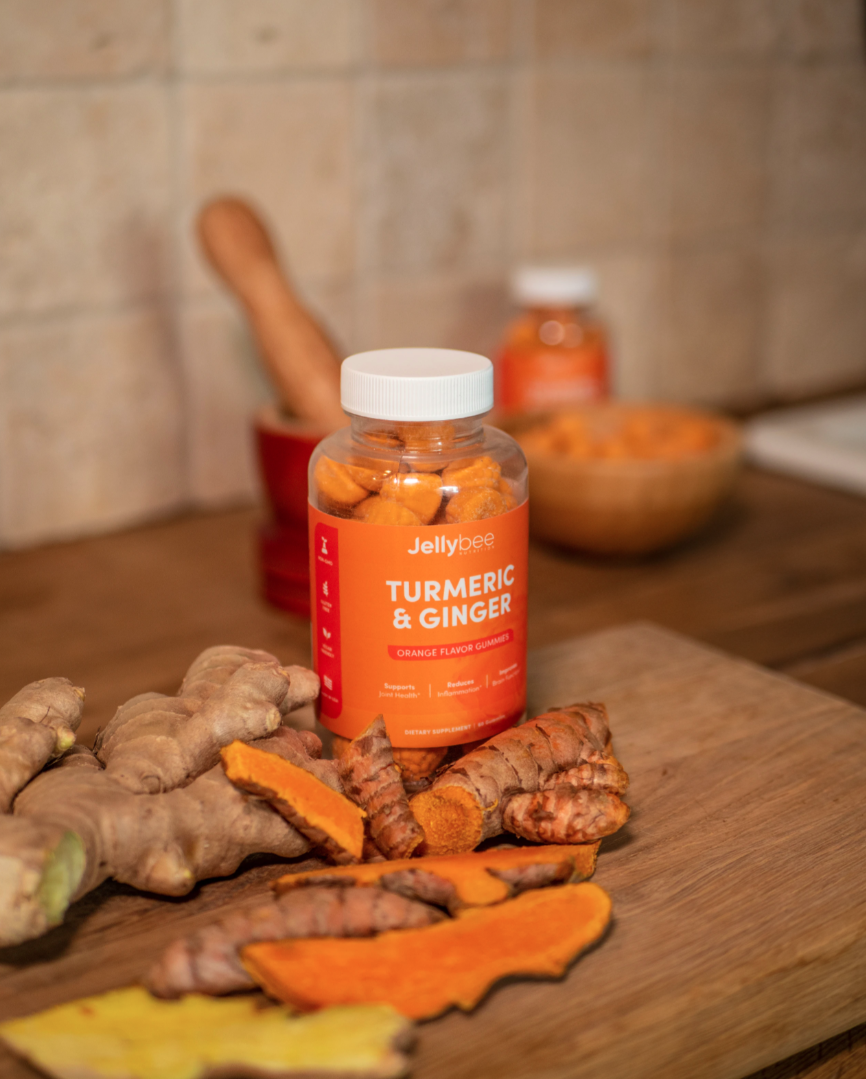The vivid yellow spice known as turmeric, which is used in many Asian and Middle Eastern dishes, has been linked to a number of outstanding health advantages, including the reduction of arthritis pain and weight loss. Some of these impacts are supported by substantial scientific data, while others need further study.
Continue reading to discover whether taking turmeric is a good idea for your health, as well as how to do so safely and successfully.
What is turmeric?
The plant Curcuma longa, which is native to Southeast Asia and India, is the source of turmeric. It is sometimes referred to as “Indian saffron,” despite the fact that it is a member of the ginger family.
Turmeric root is processed into a powdered spice that gives curries and other foreign foods a vivid golden color, peppery flavor, and an earthy aroma.
The curcuminoids in turmeric, sometimes known as “plant compounds,” are what give the spice its vibrant color. Curcumin, the primary component, is known as turmeric’s “active ingredient” and has been associated with favorable health effects.
However, curcumin is seldom present in turmeric spice. On average, pure turmeric powder has 3% curcumin, while curry mixtures have even less.
India’s population is thought to consume between 2,000 and 2,500 mg of tumeric and between 60 and 100 mg of curcumin daily through food.
Specialized mixtures known as “turmeric extracts” were created in recent years. The curcumin content of these highly concentrated extracts can reach 95%. For instance, 475 mg of curcumin may be present in a 500 mg tablet of turmeric extract. You can also consume supplements with separated curcumin.
To assess turmeric’s effects on health, most researchers employ isolated curcumin or turmeric extracts. The advantages of both turmeric and curcumin are covered in this guide.
Here is our analysis of nine possible applications for turmeric. You can get right to the section you’re interested in by clicking on it, or you can read them all for the most thorough analysis.
Can turmeric help you lose weight?
Consuming curcumin or turmeric may marginally increase weight reduction. The situation is not certain, though.
In this study, people who followed a low-calorie diet for 30 days lost an average of 3.5 pounds (1.6 kilograms). They shed an additional 9 pounds (4.1 kilograms) and 1.6 inches (4.1 centimeters) from their waists on average after incorporating 800 mg of curcumin into the same diet for the following 30 days.
In the majority of trials, participants were instructed not to alter their regular diet or level of physical activity while taking turmeric or curcumin; nonetheless, the outcomes of those studies on weight loss were inconsistent.

In one study, 1,500 mg of curcumin or a placebo were given daily to 240 individuals at risk for type 2 diabetes. The curcumin group’s participants shed an average of 8.5 pounds (3.9 kilograms) and 1.4 inches (3.6 cm) off their waists after nine months. The placebo group’s participants gained a little weight and had bigger waists.
Other studies that urged participants not to alter their typical food or exercise routines have also resulted in weight loss, but to a lesser extent.
Despite positive changes to some heart health markers, such as decreased triglycerides, in some studies, those taking turmeric or curcumin did not lose weight.
It’s likely that consuming curcumin will help you slim down a little bit, both in terms of weight and waist size. It appears that not everyone experiences this, and it’s unclear what increases the likelihood of it working.
Fortunately, a lot of people may reduce their weight without using supplements or drugs. Making lifestyle adjustments that result in successful weight loss is the key. For instance, there is compelling evidence that adopting a low-carb diet and placing an emphasis on high-protein foods will aid in weight loss.
Does turmeric reduce inflammation?
When your body detects an irritant, such as a virus, a splinter, or an open wound, it will respond by boosting your immune system to protect you. This process is known as inflammation. It’s typically a fleeting but necessary reaction that aids in the body’s ability to recover and fight off disease.
However, stress, sickness, or aspects of a person’s lifestyle can sometimes cause inflammation to become chronic. Heart disease, diabetes, cancer, and other illnesses have all been related to persistent, low-grade inflammation. Controlling inflammation may promote better aging.
Decades of research on both animals and people suggests that curcumin may aid in reducing inflammation. High-quality clinical studies have more recently shown that curcumin has anti-inflammatory properties.
In 2015, it was discovered that taking 1,000 mg of curcumin for eight weeks reduced CRP levels in persons with metabolic syndrome by an average of 2.12 mg/dL. The CRP didn’t change in the placebo group, in contrast.
One analysis, however, discovered that in some trials, consuming curcumin or turmeric didn’t significantly lower CRP or other inflammatory markers in patients with heart disease, severe renal disease, and rheumatoid arthritis.
Can turmeric improve heart health?
Arterial function
A steady blood flow that carries vital nutrients, hormones, and other chemicals to your muscles, brain, and other organs is ensured by healthy arteries. Heart disease is greatly influenced by damage to the inner layer of the arteries, which can be caused by excessive blood sugar or other factors.
High-quality research indicates that curcumin aids in defending this inner layer, allowing the arteries to remain open wide for blood flow.
In an eight-week experiment, taking 300 mg of curcumin daily led to comparable improvements in vascular function and inflammatory indicators as taking a statin medicine did in persons with type 2 diabetes.
Curcumin may strengthen arteries, but it doesn’t appear to significantly lower blood pressure. Curcumin has little to no overall impact on blood pressure, according to two analyses of clinical trials published in 2019.
Fortunately, changing your lifestyle will help you lower your blood pressure.

Lipids
Numerous studies show that curcumin can assist persons with metabolic syndrome, type 2 diabetes, or heart disease lower their triglycerides.
In certain people, curcumin may also lower levels of low-density lipoprotein (LDL) cholesterol. Curcumin may be helpful for those with raised LDL cholesterol who are at an increased risk of heart disease, according to researchers who conducted an analysis of seven trials in 2017.
In those with type 2 diabetes or metabolic syndrome, curcumin dramatically reduced LDL cholesterol and triglycerides, according to a more recent assessment. But the outcomes of the investigations differed greatly. The trials with the best outcomes had subjects ingesting 300 mg or more of curcumin daily for at least eight weeks.
Curcumin might not, however, improve all heart health indicators.
For instance, all participants in an eight-week trial of individuals with metabolic syndrome got general health information. The LDL cholesterol levels of those who received 1,000 mg of curcumin daily were reduced. Although there was no difference between individuals who took curcumin and those who took a placebo when it came to changes in levels of tiny, dense LDL, the kind having the highest association with heart disease.
4. Turmeric may lessen arthritic symptoms.
Chronic joint inflammation brought on by arthritis may be accompanied by discomfort and limited mobility.
Sometimes referred to as “wear and tear” arthritis that develops with aging, osteoarthritis is the most frequent kind. Though it can affect any joint, it frequently affects the neck, hips, and knees.
Reviews of clinical research suggest that ingesting curcumin or turmeric extract is just as effective at reducing arthritic pain as taking non-steroidal anti-inflammatory medicines (NSAIDs), such aspirin or ibuprofen.
According to one study, consuming curcumin for arthritis symptoms had more advantages than taking medicine.
In this study, 1,500 mg of curcumin or an NSAID was administered for 28 days to 139 participants with knee osteoarthritis. By the trial’s end, pain relief was comparable across the two groups, but the curcumin group experienced fewer digestive adverse effects than the NSAID group. Added benefit? They shed 2.2 pounds on average (1 kilo).
Early study indicates that curcumin supplementation may be helpful for patients with rheumatoid arthritis, despite the fact that this ailment hasn’t been extensively investigated.
Rheumatoid arthritis patients who took 250 or 500 mg of curcumin daily for three months saw a significant improvement in their symptoms and a drop in inflammation markers compared to those who took a placebo in a 2017 experiment. An earlier study shown that consuming 500 mg of curcumin daily reduced the symptoms of rheumatoid arthritis.
For more information you can click:




